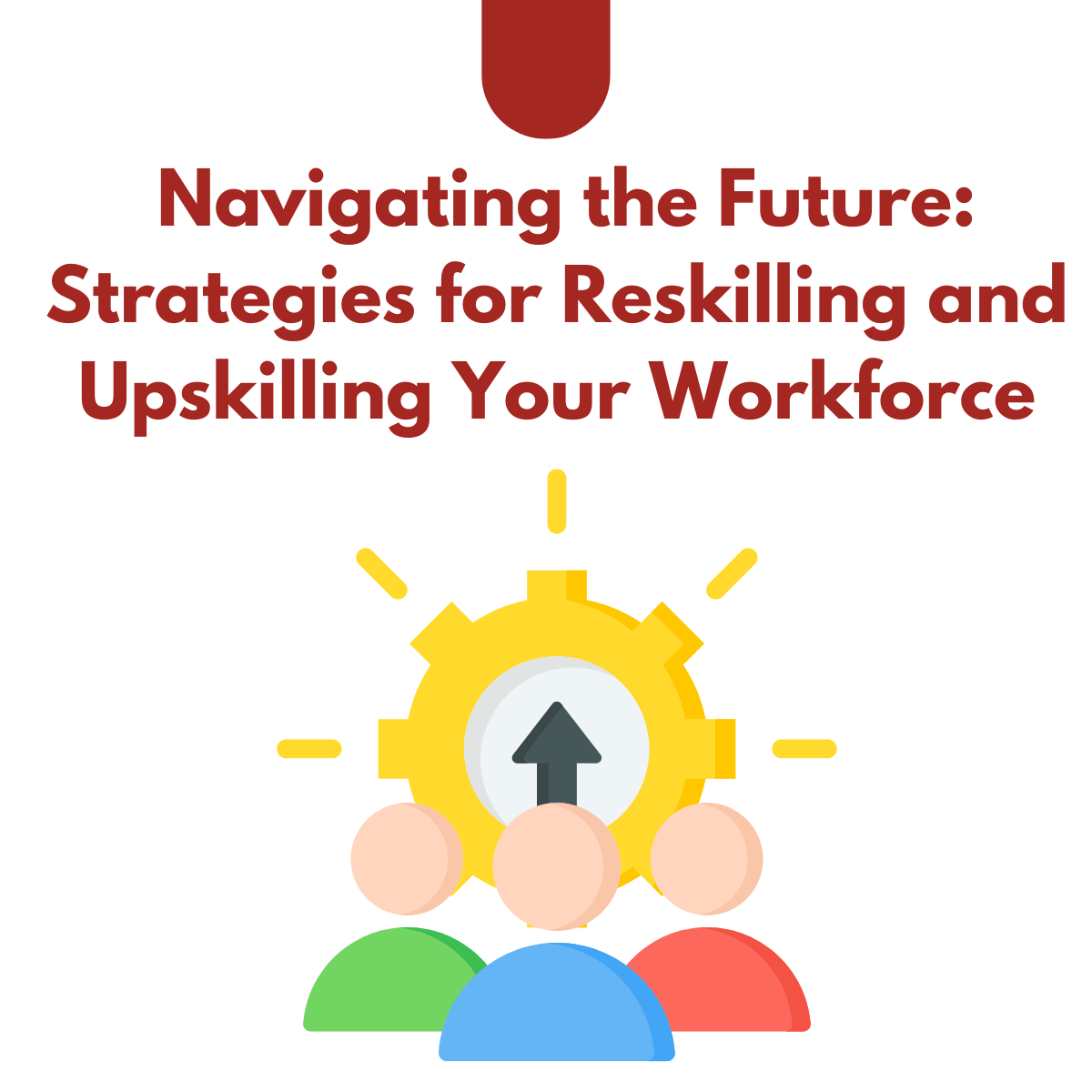Navigating the Future: Strategies for Reskilling and Upskilling Your Workforce

The only thing that is consistent in the ever-changing workplace of today is change. Because industries are always changing due to technological breakthroughs, altering market needs, and economic volatility, it is critical for organizations to reskill and upskill in order to succeed. It is now essential to prepare your personnel for the future of work as the digital revolution picks up speed.
Initiatives to reskill and upskill workers are proactive steps that enable them to pick up new skills relevant to their jobs and adjust to changing trends. Organizations that engage in ongoing education and training not only prepare their workers for the future but also cultivate a resilient and innovative culture.
Here are some key strategies to effectively prepare the workforce for the challenges and opportunities of tomorrow:
Assess Current Skills and Future Needs: Start by performing a thorough assessment of the current skill sets held by your team in order to pinpoint any skill gaps that could be impeding the expansion of your company. To predict future skill requirements, examine market demands, technology developments, and industry trends.
Develop Tailored Training Programs: Create training curricula specifically designed to fill up the skill shortages in your staff. To accommodate different learning styles and preferences, combine traditional classroom instruction with online courses, seminars, and experiential learning.
Embrace Technology-Enabled Learning: Leverage digital platforms and e-learning tools to provide accessible and flexible learning opportunities for employees. Invest in interactive modules, virtual simulations, and mobile learning apps to facilitate continuous skill development anytime and anywhere.
Promote a Culture of Lifelong Learning: Establish a culture where people are empowered to take charge of their own professional growth and where continual learning is highly valued. Offer incentives to staff members who actively participate in upskilling programs, such as certificates, chances for professional progression, and recognition.
Promote Cooperation and Information Sharing: To promote information sharing and talent transfer, promote collaboration across departments and team members. To encourage cross-functional learning and creativity, set up communities of practice, peer-to-peer learning networks, and mentoring programs.
Offer Support and Resources: Give staff members the tools and assistance they need to successfully pursue their learning objectives. To show your dedication to their professional development, provide financial support for tuition costs, access to learning resources, and a specific time set aside for training during business hours.
Measure and Evaluate Progress: To track the effectiveness of your upskilling and reskilling initiatives, use metrics and performance indicators. To continuously enhance your training activities, pay attention to employee happiness, learning results, and business effects.
In conclusion, reskilling and upskilling are essential strategies for preparing your workforce for the future of work. By investing in continuous learning and development, organizations can adapt to change, stay competitive, and empower their employees to thrive in an ever-evolving environment. Embrace the opportunities that come with embracing change, and lead your workforce confidently into the future.
